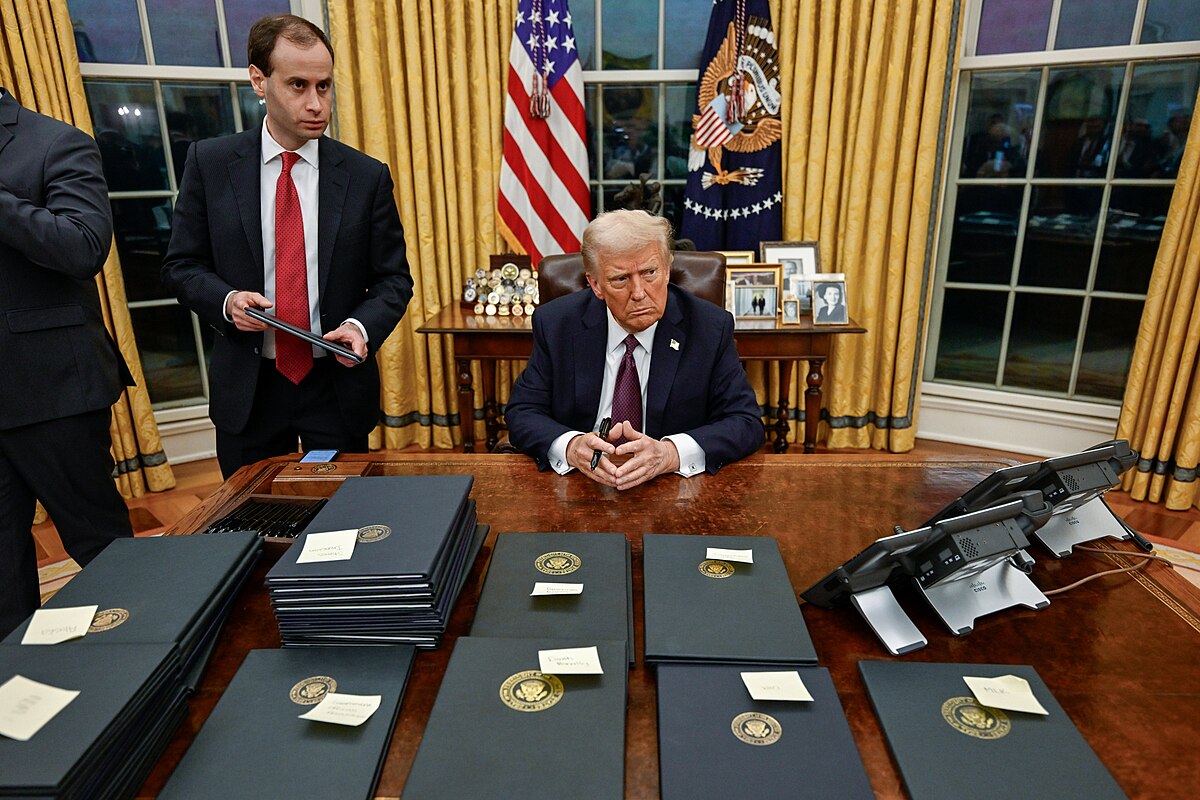- 14 3402-5578
- Rua Hygino Muzy Filho, 737, MARÍLIA - SP
- contato@latinoobservatory.org
 The Trump White House
The Trump White House
The new Trump administration's stance on immigration has resulted in embarrassment in relations with Latin American governments, highlighting its refusal to dialogue with leaders in the region about his plans to carry out mass deportations. This decision has generated apprehension among leaders of countries such as Mexico, Guatemala and Honduras, who are looking for alternatives to deal with possible social and economic impacts.
Latin American officials requested meetings with Trump's transition team, but were told that detailed discussions would only take place after the inauguration, according to a report in the Latin Times. Meanwhile, Trump is preparing to issue more than 100 executive orders, including the reactivation of Title 42, a measure that allows rapid expulsions of migrants for public health reasons, as well as policies such as the "Remain in Mexico" program. His administration intends to use all available federal resources to implement an aggressive border security and deportations agenda.
Regional governments face challenges in responding to these actions. Guatemalan President Bernardo Arévalo has rejected the idea of signing a "safe third country" agreement, while Honduran President Xiomara Castro has suggested drastic measures, such as closing a U.S. military base on its territory, if mass deportations go ahead. In Mexico, President Claudia Sheinbaum expressed opposition to Trump's policies, but indicated a willingness to accept deportees under specific conditions.
Amid the lack of dialogue with Trump's transition team, Latin American leaders have held meetings to seek a coordinated response to the looming crisis. Proposals include ministerial meetings to discuss the implications of U.S. migration policies. Meanwhile, analysts indicate that the Trump team's reluctance to negotiate may be related to the Logan Act, which prevents future administrations from engaging directly with foreign governments before taking power, according to the publication.
The scenario reflects tensions in relations
between the US and Latin American countries, especially with the threat of
tariffs and pressure to accept asylum agreements. The situation underscores the
difficulty of building a regional consensus and the complexity of dealing with
the challenges posed by U.S. migration policies.











